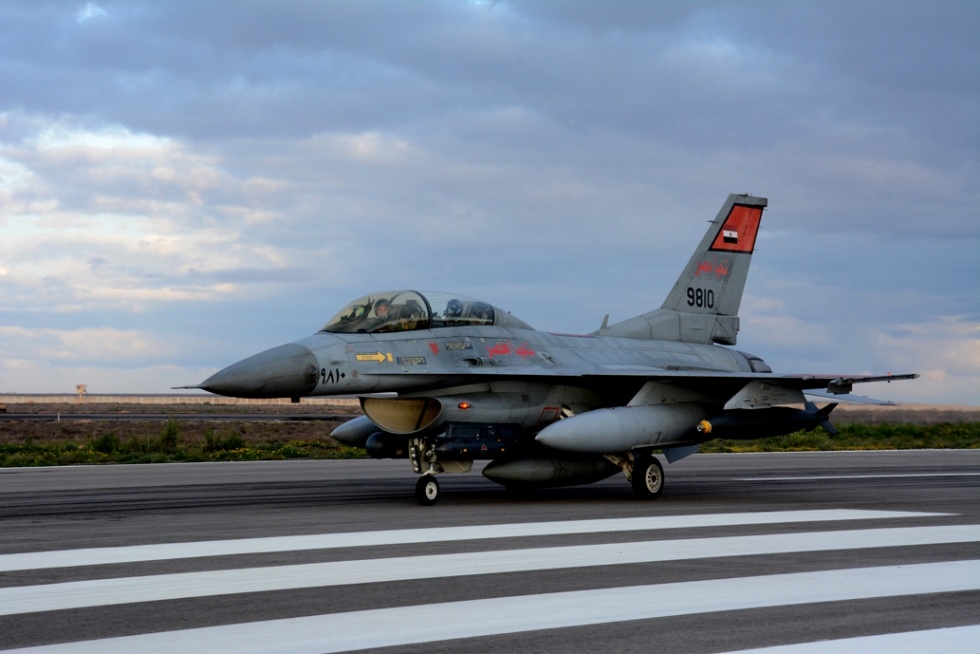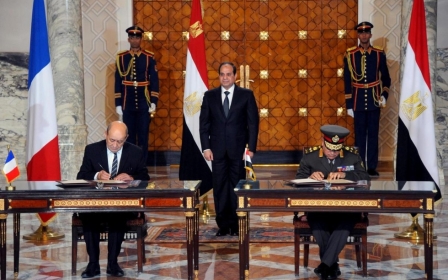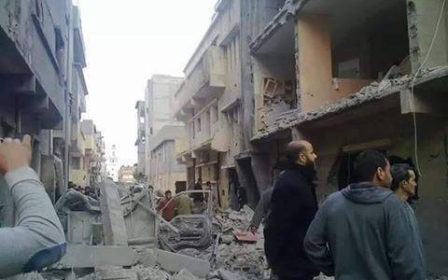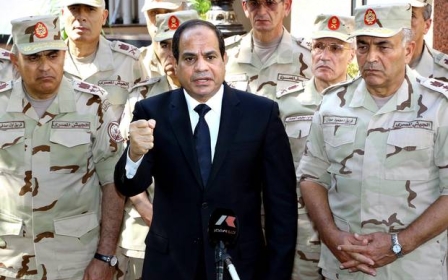Egypt urged to avoid civilian deaths in Libya

The UN has called on Egypt to avoid civilian deaths in its airstrikes against Islamic State (IS) targets in neighbouring Libya.
The call by UN High Commissioner for Human Rights Zeid Raad Al Hussein on Tuesday came a day after at least seven civilians were reportedly killed in Egyptian air strikes on northeast Libya, launched after a video emerged online showing the execution of 21 Egyptian Coptic-Christian workers by IS militants.
Al Hussein said in a statement Tuesday that although the mass beheadings were a "vile crime targeting people on the basis of their religion," principles of distinction between civilians and fighters had to be respected.
Hussein said: "The brutal murder of these men and the ghastly attempt to justify and glorify it in a video should be roundly condemned by everyone."
Meanwhile, Human Right Watch also called on Libya and Egypt "to take feasible steps to protect civilians", while urging the two countries to investigate the civilian casualties of their air strikes.
Western powers stressed the need for a political solution to the crisis gripping Libya, seemingly rebuffing Egypt's call for the United Nations to authorise military intervention in the war-torn north African state on Wednesday.
President Abdel Fattah al-Sisi said "there is no choice" but to create a global coalition to confront IS.
The matter will be taken up by the UN Security Council on Wednesday after a request by Egyptian Foreign Minister Sameh Shoukry, who is seeking backing for military intervention and to "fully support" a campaign against IS, his ministry said.
Arab diplomats have expressed support for Egypt's request but said they thought it would also require formal backing from Libya.
That could prove difficult to secure, however, as Libya currently has two rival parliaments and governments - one side that wants Egyptian intervention and the other rejects it. Delegates from Libya's rival parliaments held UN-mediated indirect talks this month described as positive.
Western powers also seemed to distance themselves from the calls for military action, saying a UN-backed attempt to get Libya's warring sides to negotiate was the "best hope" for peace.
The United States, Britain, France, Germany, Italy and Spain in a statement released by Rome said the recent killings showed "once again the urgent need for a political solution to the conflict".
In talks in New York, Shoukry told fellow diplomats that Libya's Tobruk-based government needed to be better armed to take on militias.
Sameh is calling on the Security Council to "reconsider the restrictions imposed on the Libyan government on arms deliveries," the Egyptian ministry said in a statement.
He also "underlined the need to allow countries in the region... to support the Libyan government's efforts to impose its authority and restore stability".
Shoukry also called for steps to be taken "to prevent armed and terrorist groups from obtaining weapons illegally".
Cairo's diplomatic push comes a day after Egyptian F-16s bombed militant bases in Derna and on the fourth anniversary of the beginning of the 2011 NATO-backed revolt that ousted dictator Moamer Gaddafi.
The breakdown of government in the former Italian colony has contributed to a dramatic increase in the number of African and Middle Eastern migrants and refugees arriving on its shores by sea after transiting through Libya.
"What is happening is very complicated. We are following events closely and with concern but there is no need to jump from total indifference to hysteria and an unreasonable reaction," Italian Prime Minister Matteo Renzi said.
The European Union said it would discuss joint action on Libya with the Egyptian and US governments this week, but that it saw no role in any military intervention for now.
Experts say Sisi wants to be seen as a key ally of the West against "terror", deflecting international criticism of his crackdown on the Muslim Brotherhood of former president Mohamed Morsi, whom he ousted in 2013.
As well as Libya to the west, Egypt is dealing with an insurgency in its own east, in the Sinai, where militants have also joined IS and killed scores of troops.
New MEE newsletter: Jerusalem Dispatch
Sign up to get the latest insights and analysis on Israel-Palestine, alongside Turkey Unpacked and other MEE newsletters
Middle East Eye delivers independent and unrivalled coverage and analysis of the Middle East, North Africa and beyond. To learn more about republishing this content and the associated fees, please fill out this form. More about MEE can be found here.




